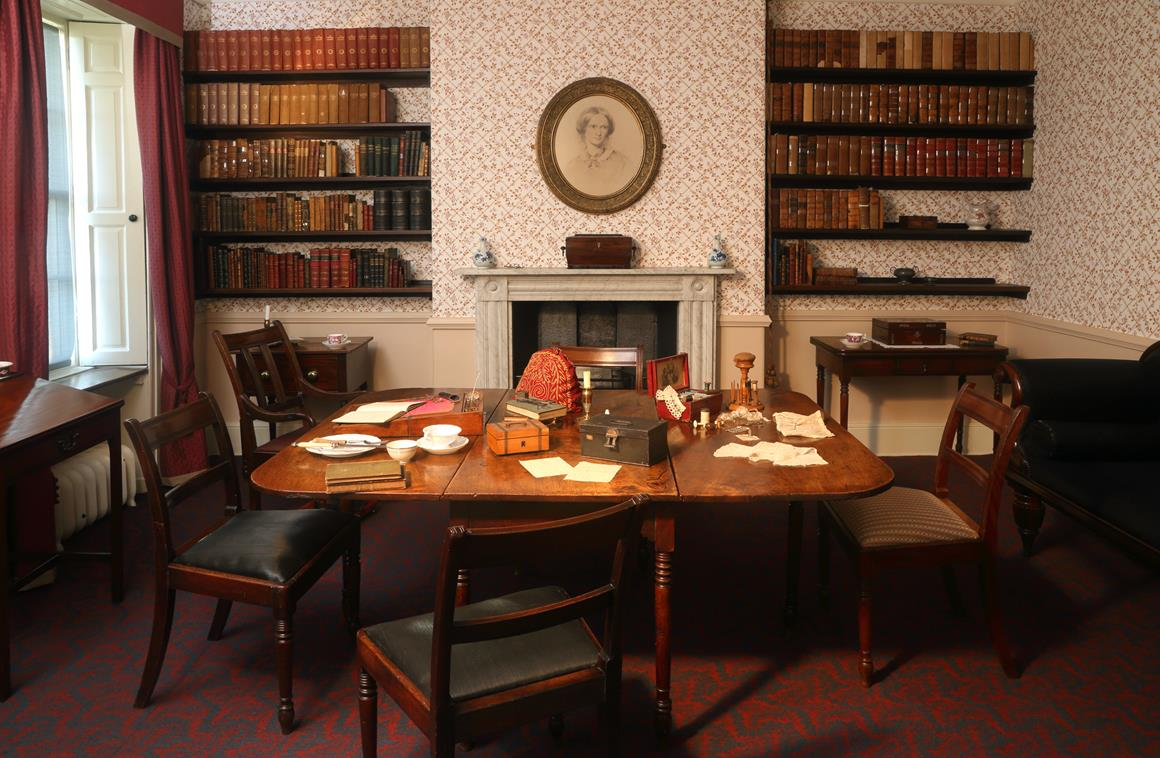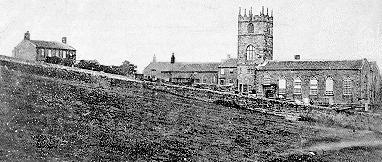 This is probably the first and only book which is focused solely on Charlotte Brontë and Brussels, and would therefore be of great interest to everyone interested in that period of her life.
This is probably the first and only book which is focused solely on Charlotte Brontë and Brussels, and would therefore be of great interest to everyone interested in that period of her life.Frederika MacDonald, in 1859, was herself a pupil at the Pensionnat Heger where 17 years earlier Charlotte had been a student, and later a teacher. She knew from first-hand experience what life was like at the school, and even more interesting, what M. Heger and his wife Madame Heger were like in real life.
Frederika had been writing articles as an ex-pupil of the Pensionnat from 1894 onwards, but when Charlotte’s letters to Heger were made public in 1913 (when Paul Heger handed them over to the British Museum), she was the first to quote from these letters in a Brontë biography. They form a vital part of this publication, in which Frederika tries to unravel the ‘secret’ of Charlotte on the basis of these letters.
The book is separated in 2 parts:
Part I; CHARLOTTE BRONTË’S LETTERS TO M. HEGER
(These Letters supply the Key to the Secret of Charlotte Brontë). She ends this part by quoting Charlotte’s last desperate letter to Constantin Heger. She writes: “ The Letter obtained no answer.
And thus the end was reached. We now know where in Charlotte Bronte's life lay her experiences that formed her genius and made her the great Romantic whose quality was that she saw all events and personages through the medium of one passion: the passion of a predestined tragical and unrequited love.”
Part II; SOME REMINISCENES OF THE REAL MONSIEUR HEGER
Frederika MacDonald gives us a marvellous insight into her life at the Pensionnat and her own personal view of the teacher she and Charlotte both shared. She writes: “ But Monsieur Heger had one really beautiful feature, that I remember often watching with extreme pleasure when he recited fine poetry or read noble prose : - his mouth, when uttering words that moved him, had a delightful smile, not in the least tender towards ordinary mortals, but almost tender in its homage to the excellence of writers of genius.
In brief, what M. Heger 's face revealed when studied as the index of his natural qualities, was intellectual superiority, an imperious temper, a good deal of impatience against stupidity, and very little patience with his fellow-creatures generally; it revealed too a good deal of humour; and a very little kindheartedness, to be weighed against any amount of irritability. It was a sort of face bound to interest one; but not, so it seems to me, to conquer affection.” There are also some interesting illustrations, which you hardly find in any other publication or biography.
I strongly recommend this book as a wonderful addition of any good Brussels/Brontë collection.
If you are able to get your hands on a copy, don’t let it slip you by. There is however the possibilty to read the text, by clicking on this link: http://www.archive.org/details/secretofcharlott00macduoft
To see the digitalized original edition, click on ‘FLIP BOOK’ in the left panel where it says; ‘View the book’.
Some more information on Frederika’s book in the Australian Brontë Association Newsletter:
www.ics.mq.edu.au/~chris/bronte/news17.pdf



Charlotte Bronte had never experienced anyone like M. Heger before she and Emily walked into Zoe Heger's school.
BeantwoordenVerwijderenWhen she met him , for Charlotte it was like a drought dry forest contacting an open flame.....towering conflagration lay straight ahead.
Charlotte's desperate clinging to M. Heger is also explained when one reflects no one near his quality of mind, learning and intellectual inquiring was in her life before and well after .
Her letters are quite truthful when she says she must cling to her life, that is, his friendship. It was that much a case life or death for this woman of genius when you know her Haworth life before fame .
Without him, she was back in a mentally void landscape ( save for her own family, and even they could not compare with his knowledge ) However it was this terrible desperation for his letters that cut them off just, as her desperation for his regard ruined life at the school . Her very need killed off the supply
For Constantin Heger , he was simply being his kind , brilliant self . But for Charlotte ,he was a revelation she could not give up easily ...only when seen in these terms can her outrageous demands ( what else would you call them ? ) be seen in a piteous light .
Charlotte and Branwell were twins still. But she kept her love crisis hidden and was eventually able to surmount it .
This was due to her amazing fortitude...but also to society's expectations . It simply would not permit a woman to indulge in the public wallow Branwell was allowed without far graver consequences than a hang over .
Charlotte was also lucky the object of her love and his long suffering spouse were people of great integrity. ...though she would not believe that of Madame Heger .
Because in order to ease her guilt for loving a married man, Charlotte had to make his wife a dragon Bertha figure ...and we see this being in most of the novels
It is interesting to look at Charlotte's relationship with George Smith later as a reenactment of Brussels in a minor key ...with Mama Smith cast in the role of a lesser Madame Beck...an older female who is keeping our heroine from the love object.
When in fact the love object sought protection behind the lady dragon when Charlotte's demands grew too great,
In Mr. Smith's case, Charlotte did not produce novels at a rate fast enough to warrant the interest he showed early on to stay at that level . Both he and M. Hager had no idea the fire they were contending with...but they learned.
Her emotional volume was set much higher than most people's . It was a source of pain for her , but also an important part of her genius .
However by the time Charlotte knew Smith , she could control herself far better . She had learned as well .
We are lucky it was Frederika MacDonald who first used Charlotte's letters to M. Heger in a book, as she had a marvelous and vital perspective : She knew the real Hegers. I'm glad someone stood up for them